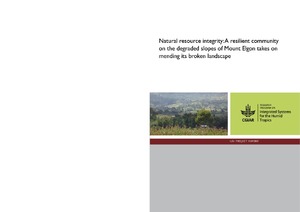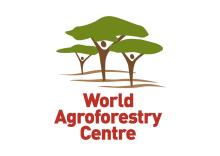Resource information
The once beautiful foothills of Mount Elgon, in eastern Uganda are today seriously degraded, with excessive water run-offs and landslides becoming regular occurrences. Restoring the health and productive potential of the agroecosystem had become a dire need of those, mostly women, who stayed to farm it. By challenging the status quo and doing things differently, the Kapchorwa District Landcare Chapter (KADLACC) has been helping this farming community over the past fifteen years to manage its natural resources more sustainably, as well as more profitably. By building on the innovation skills of the community, by helping it address local challenges and by empowering the women of the community to manage their natural resources in sustainable ways, the platform has helped to restore much of what has been lost in recent decades. Before the platform was established, crops, properties, infrastructure and even lives were regularly destroyed. Trees and other vegetation were removed indiscriminately to make room for farms and settlements. Fragile soils were exposed to the agents of erosion. Heavily sloped land was tilled. Women, although providing up to 90% of the agricultural labour force, had little decision-making power. Household incomes and food security declined steeply, along with soil fertility and women’s engagement. With the establishment of KADLACC, twin journeys towards land restoration and women’s empowerment began. Community members were quick to support the entire process. Awareness of women’s rights was raised through consultative processes from village to sub-county levels, engaging individual farmers, farmer groups, local government officials and external actors. Community members, through farmer learning cycles, were linked to trained facilitators. This helped farmers and farmer groups consolidate their grassroots understanding of the challenges they faced and the options they could employ to address them. Livelihood goals were linked to conservation goals. Local-level policy reforms helped define and encourage women’s ownership and control over land. Over these 15 years, community by-laws supporting watershed management, land restoration and agroforestry practices have been developed and implemented. Women have been given greater priority in natural resource management decision-making. Some 300 women displaced from their land have been granted access to collective land for organic and horticultural farming. And by improving this community’s access to agricultural and information services, KADLACC has helped this farm community significantly improve its productivity, while restoring the integrity of its natural resource base.



